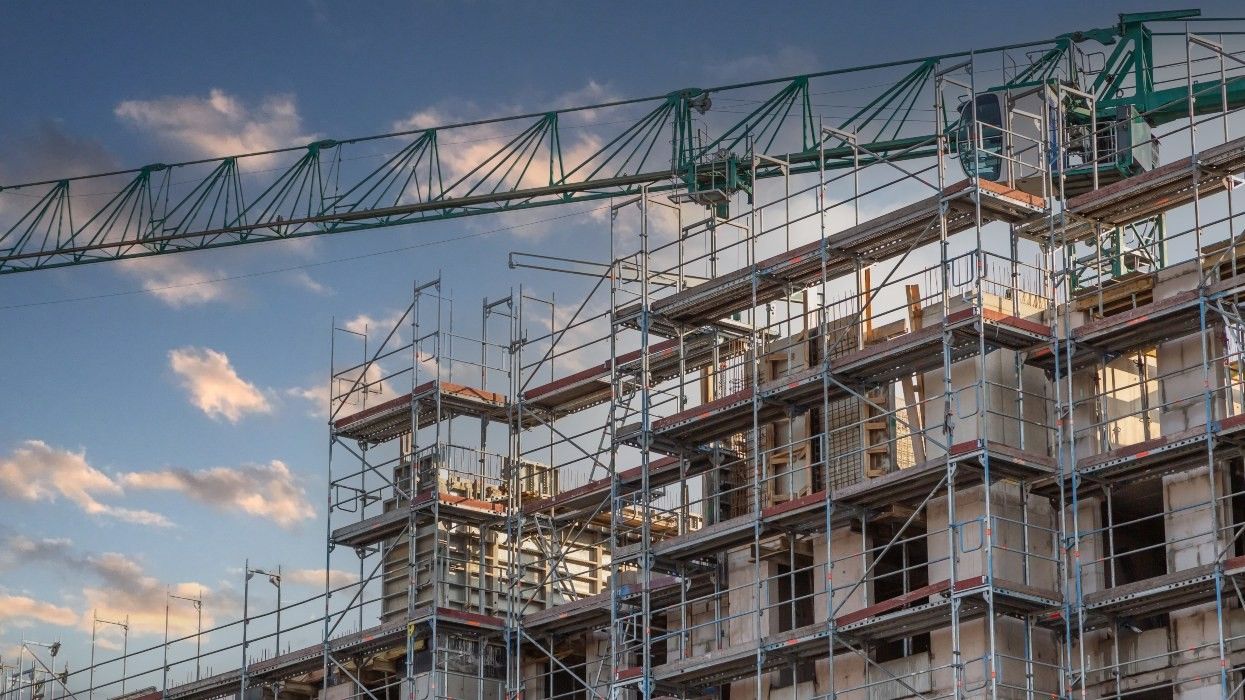As of January 1, the controversial increases to development cost charges (DCCs) collected by the Metro Vancouver Regional District (MVRD) are now in effect. The increases are the first in a three-phase plan, with the next two rounds coming into effect on January 1 of 2026 and 2027, respectively.
Metro Vancouver levies DCCs — usually collected on their behalf by local governments — on new construction projects as a way to fund critical infrastructure projects — utilities, sewage, wastewater, solid waste — the region needs to support its growth.
These latest increases were approved in October 2023, despite the MVRD being called out by then-Minister of Housing, Infrastructure, and Communities Sean Fraser, and also included direction for staff to review the existing waiver program and "potentially extend the waiver or reduction to profit-oriented developers of affordable rental housing."
Staff have since returned with the findings from their review and a set of recommendations that they will be presenting to the Regional Planning Committee meeting on Thursday, January 9.
DCC Waivers For Private Developers
According to a staff report, the objective of the review "was to identify whether the DCC payments impact the viability of the project and the ability of the private developer to produce the agreed upon affordable/inclusionary units at below-market rates" and the work included "modelling the ability of mixed-market residential developments to absorb DCC payments for affordable housing units in a market development, and the impact of these DCC payments on the provision of affordable units required through negotiations/agreements with local governments."
Currently, DCCs can be waived for not-for-profit rental housing that is owned, leased, or otherwise held by a not-for-profit entity, such as a not-for-profit housing provider or a government entity. In these instances, the existing bylaw requires that applicants either own or lease the affordable units at the time of the application for a DCC waiver — usually at the time of building permit issuance. In effect, this means not-for-profit housing developed by private developers is essentially not eligible for DCC waivers.
"The intent of the requirement for ownership or possession of the affordable units at the time of the application was to ensure any foregone DCC revenue directly supported non-profit affordable housing, without relying on private agreements to secure housing commitments that the region cannot enforce or effectively monitor," said staff.
However, it is now relatively common for private developers to build not-for-profit housing that is then conveyed to a not-for-profit upon completion, as part of inclusionary zoning policies. Not-for-profit housing delivered this way is not currently eligible for DCC waivers, and MVRD staff have proposed that this be changed.
"The DCC waiver review found that, given the increasing number of developments in the region in which for-profit and not-for-profit entities collaborate to include a mix of market and below-market housing, the waiver framework should be adjusted to enable DCC waivers for this type of development, provided there are mechanisms in place to ensure that the benefit of the waiver flows through to the not-for-profit entity," said staff. "Such mechanisms could include using contract terms that require the transfer of units at cost or a specified price, with no provision for land cost or developer profit."
Staff say that if this change is implemented, the amount of affordable units that receive a DCC waiver is expected to increase by between 281 to 361 units per year in the 10-year period between 2025 and 2034. Their review also found that waiving DCCs for such units could potentially reduce break-even rents — the minimum rents that need to be charged — by 4.0% to 4.4%.
Other Amendments
Along with the change that expands the waiver program to private developers, staff have also proposed a series of other changes that simplifies some of the existing rules and regulations.
Under the existing waiver bylaw, there is currently a household income criteria for not-for-profit affordable housing units and a process that entails ongoing compliance monitoring. Staff are proposing that this be streamlined to allow for housing agreements in place of ongoing compliance monitoring, which in some cases is also performed by other levels of government.
Also under the existing policy, an entire project becomes eligible for a DCC waiver if at least 30% of the units meet the household income requirement, as defined by BC Housing. Staff are proposing that this threshold be removed, as "nearly all waivers granted to non-profits to date have been for 100% of units in the development" — because housing projects by not-for-profits usually entail all units being provided as those affordability requirements, in other words.
Lastly, staff have also proposed that the existing 50% DCC waiver for not-for-profit student housing be expanded to a 100% waiver. They are also recommending that the definition of student housing be revised, as the previous definition for "self-contained" units makes student housing projects with shared living spaces ineligible for the waiver.
According to MVRD staff, an estimated $38 million to $49 million in DCCs will be waived, annually between 2024 and 2033, under the existing waiver bylaw. If the proposed changes are implemented, the annual amount waived would rise to between $54.3 million and $69.7 million, which the MVRD says represents 0.8% to 1.0% of its average annual DCC revenue.
After receiving feedback from the various committees, the recommendations will then by forwarded to the Finance Committee and MVRD Board in February, with formal bylaw amendments then potentially up for consideration in March.





















